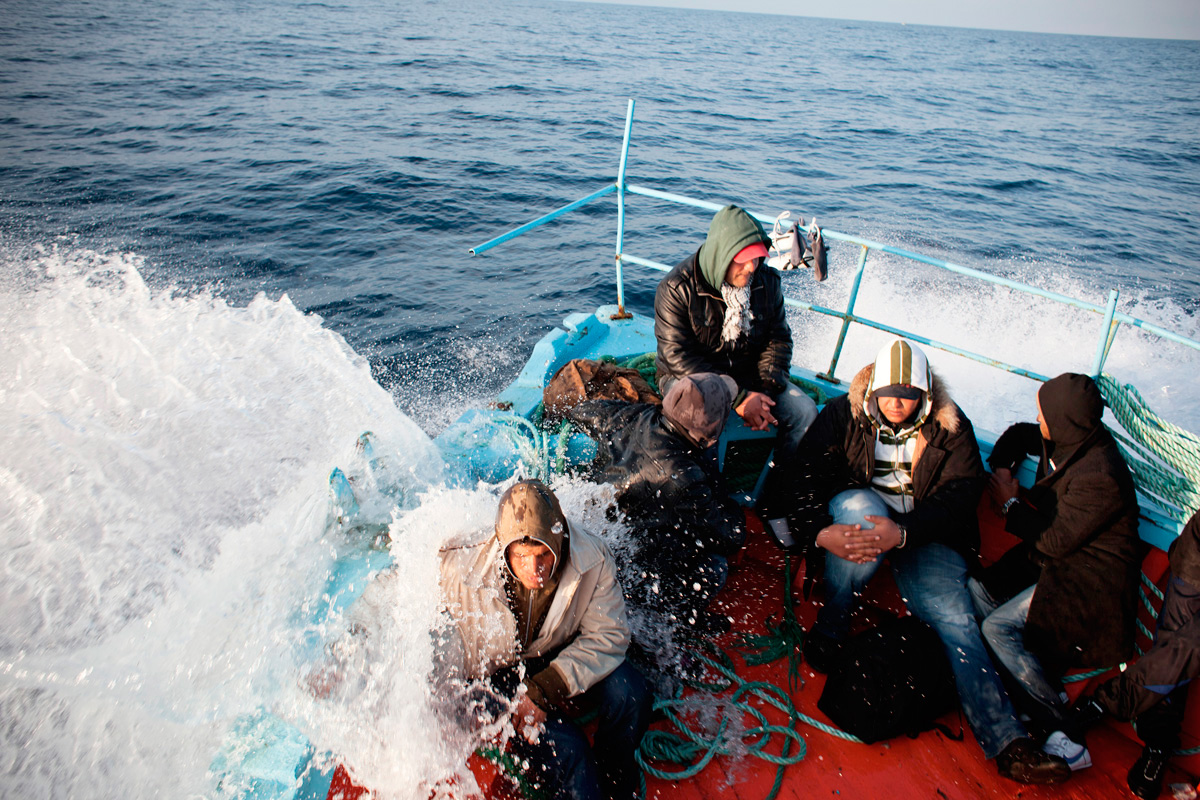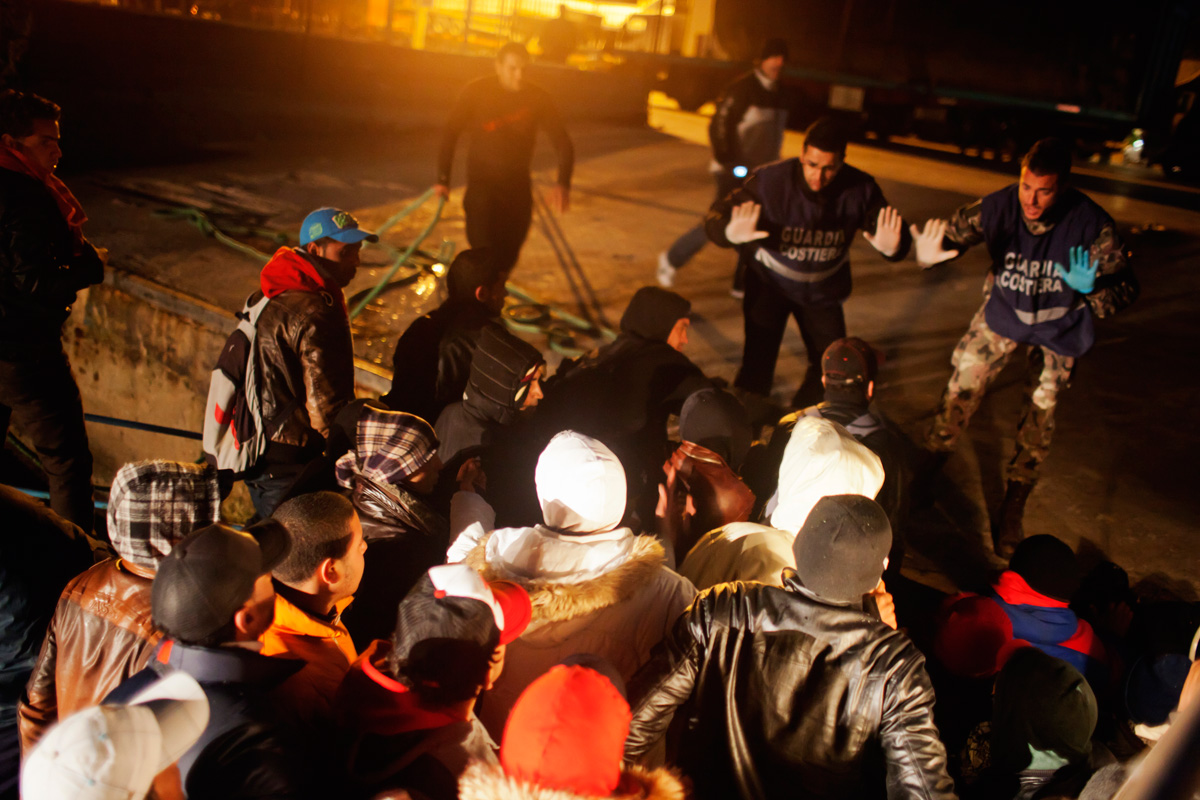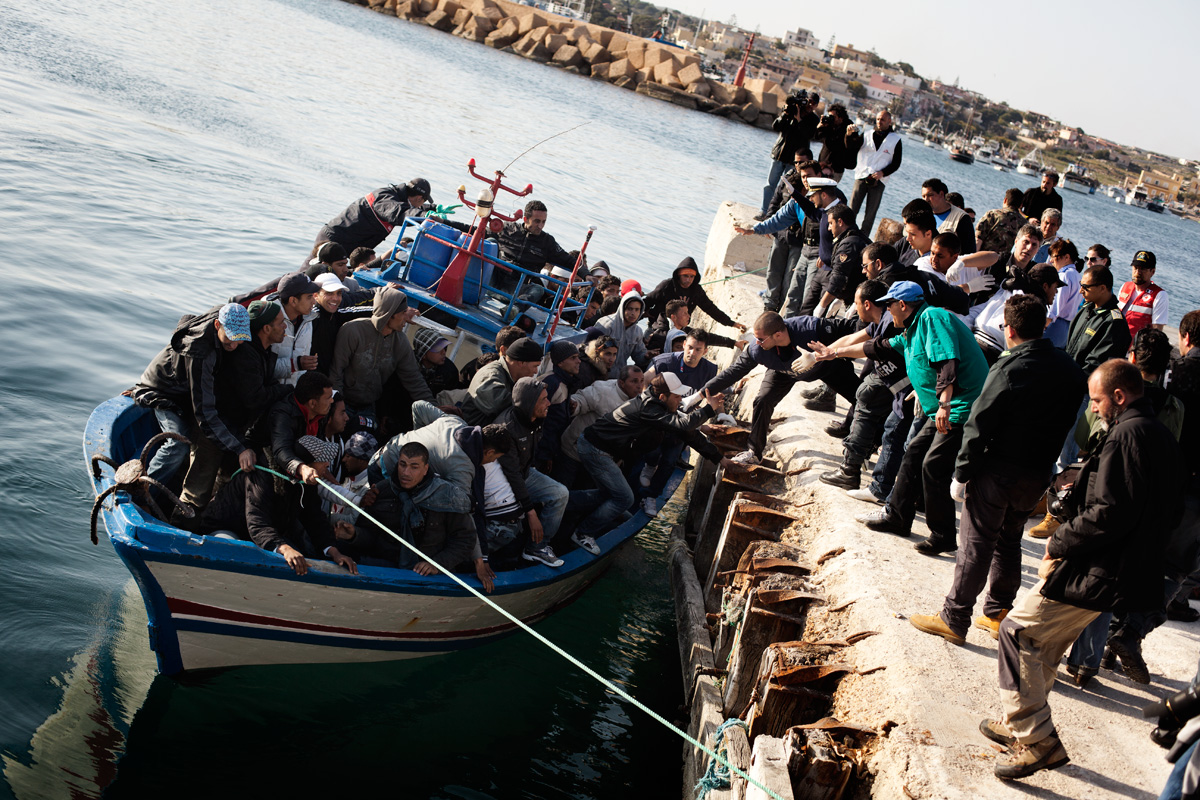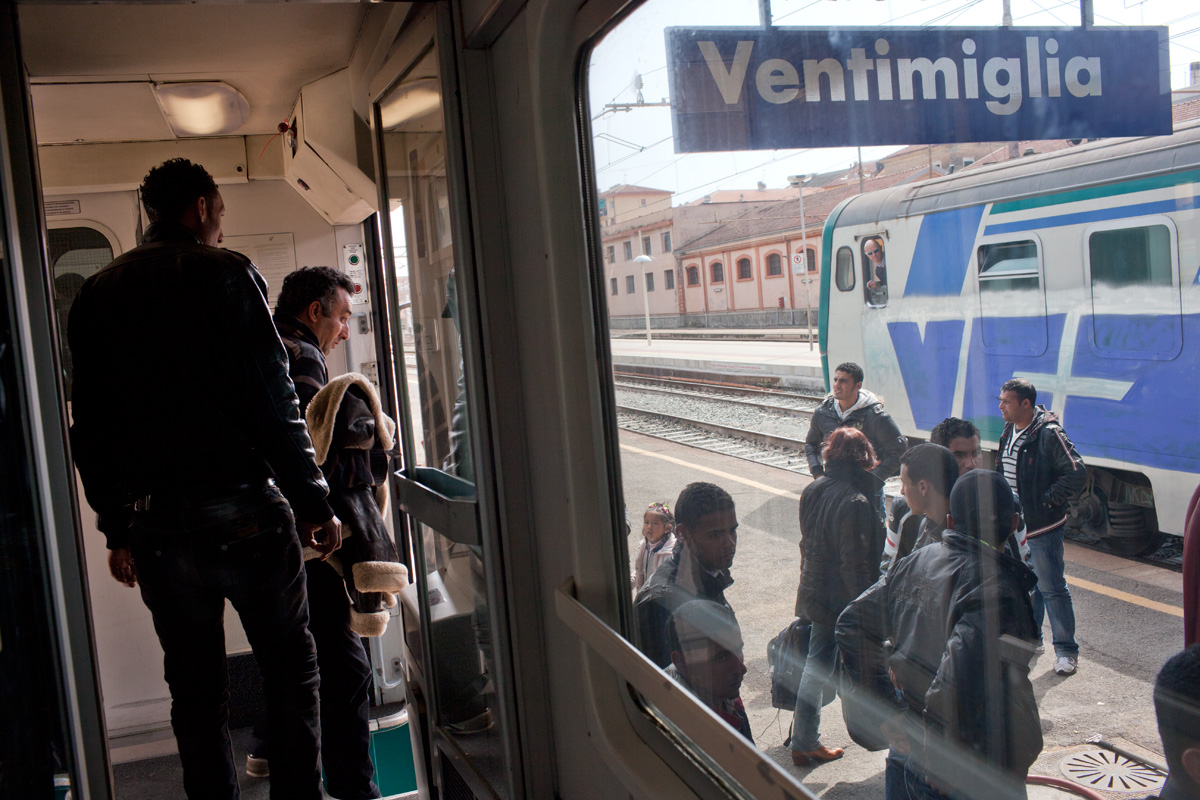RETURN TO ZARZIS
Since the fall of Ben Ali, Slah, like thousands of other Tunisians, thought that he could offer a better life to his family by migrating to Europe. A native of Zarzis, he earned his living by reselling goods that he brought in from Libya. But with the war going on there, borders were closed, bringing a fatal blow to his small business.
He decided to join the "harragas", those clandestine migrants who risk their lives by setting out across the Mediterranean Sea on makeshift trawlers that wash up on the Italian island of Lampedusa.
The mirage of the European land of promise, and at the end of the journey, nothing but hell.
Slah learned this from bitter experience. He had already come to France in 2000 and thought he knew what to expect. He couldn't have been more wrong. Having thought he would find a job in the construction industry through a friend, he ended up living in a state of utter destitution, far from his family and his 5 children who are more precious to him than anything in the world.
March - December 2011

March 16, 2011
Slah and his family at home in Zarzis.

The trawler "Oum El Khir" (Mother of Goodness) leaves Zarzis harbour with 120 passengers on board.

Slah fears the Tunisian Navy could step in and destroy all his hopes.

The leaky boat is taking in water on all sides. Passengers are freezing cold.

Europe is still far away. It will take another 18 harsh hours.

The swell makes people seasick. For most of the Tunisians in the boat, this is their first time at sea.

The bilge pump fails. The migrants will try to ask for help from another harragas boat traveling the same way.

All of them have paid 1,000 euros to the smuggler, a tremendous amount of money.

The lights of Lampedusa Island start to come into view in the distance.

After a 20-hour crossing, escorted by Italian coastguard ships, the trawler enters the port of Lampedusa.


The "Oum El Khir" has to dock in a special area provided to count passengers and pen them in.

First night on European ground. The welcome they receive does not meet their expectations.

Slah has to camp on Lampedusa port.

More than 6,000 Tunisians are staying in Lampedusa, while the detention centre has a capacity of 850 persons.

The boat cemetery of Lampedusa, where all the wrecks of Tunisian trawlers end up.

Every day new boats arrive on the island.

Everyone is waiting for a brother, a friend, a neighbour ...

To keep tensions to a minimum, harragas are transferred to the peninsula.

With some fellow Tunisians, Slah is taken directly by plane to Bari.

From there, he travels by train to Vintimille, a city on the border with France.

Slah, in the train from Italy to France.

April 2011.
Slah though he could rely on help from his two brothers, settled in France. For a while, he is put up by one of them in Essonne.

Unable to contribute to the costs, Slah feels guilty. It makes him feel like a burden to his relatives. Tensions flare. He leaves for Paris.

Every day, he struggles to find a job. From early morning he waits on the parking lot of a building supply store in the hope of being hired as a labourer for the day.

Over a nearly 9-month period, he managed to work only two weeks. But he is not able to send even a penny to his family.

Sometimes he is put up by his friend Abdel. They are living with other clandestine people, also from Zarzis, in a crowded tiny attic room.

The Libyan border is now reopened. He should be able to get back to his business, but starting from scratch again.

He decides to return to his country, receiving assistance for voluntary return. That means a plane ticket and a sum of 300 euros.

But all he has brought back in his meagre luggage is a heavy feeling of failure.





























